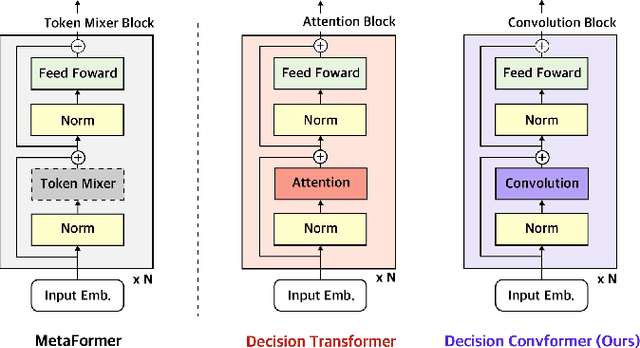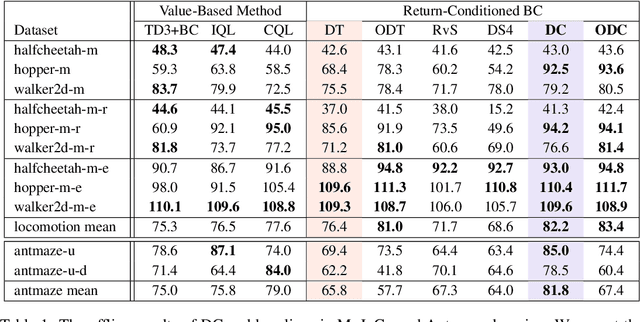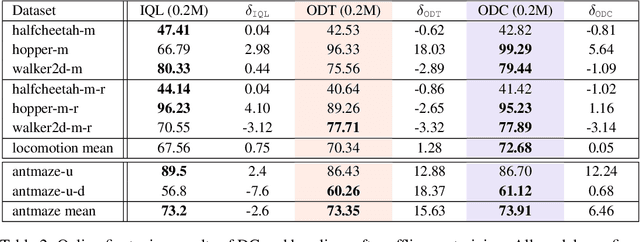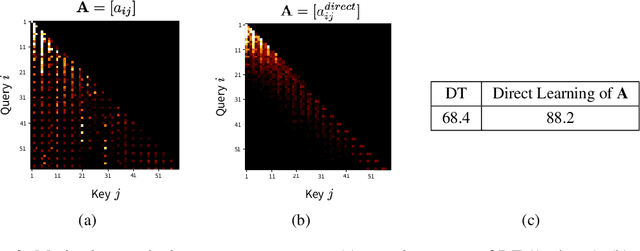Jeonghye Kim
Align While Search: Belief-Guided Exploratory Inference for World-Grounded Embodied Agents
Dec 30, 2025Abstract:In this paper, we propose a test-time adaptive agent that performs exploratory inference through posterior-guided belief refinement without relying on gradient-based updates or additional training for LLM agent operating under partial observability. Our agent maintains an external structured belief over the environment state, iteratively updates it via action-conditioned observations, and selects actions by maximizing predicted information gain over the belief space. We estimate information gain using a lightweight LLM-based surrogate and assess world alignment through a novel reward that quantifies the consistency between posterior belief and ground-truth environment configuration. Experiments show that our method outperforms inference-time scaling baselines such as prompt-augmented or retrieval-enhanced LLMs, in aligning with latent world states with significantly lower integration overhead.
RAISE: Enhancing Scientific Reasoning in LLMs via Step-by-Step Retrieval
Jun 10, 2025Abstract:Scientific reasoning requires not only long-chain reasoning processes, but also knowledge of domain-specific terminologies and adaptation to updated findings. To deal with these challenges for scientific reasoning, we introduce RAISE, a step-by-step retrieval-augmented framework which retrieves logically relevant documents from in-the-wild corpus. RAISE is divided into three steps: problem decomposition, logical query generation, and logical retrieval. We observe that RAISE consistently outperforms other baselines on scientific reasoning benchmarks. We analyze that unlike other baselines, RAISE retrieves documents that are not only similar in terms of the domain knowledge, but also documents logically more relevant.
ReflAct: World-Grounded Decision Making in LLM Agents via Goal-State Reflection
May 21, 2025Abstract:Recent advances in LLM agents have largely built on reasoning backbones like ReAct, which interleave thought and action in complex environments. However, ReAct often produces ungrounded or incoherent reasoning steps, leading to misalignment between the agent's actual state and goal. Our analysis finds that this stems from ReAct's inability to maintain consistent internal beliefs and goal alignment, causing compounding errors and hallucinations. To address this, we introduce ReflAct, a novel backbone that shifts reasoning from merely planning next actions to continuously reflecting on the agent's state relative to its goal. By explicitly grounding decisions in states and enforcing ongoing goal alignment, ReflAct dramatically improves strategic reliability. This design delivers substantial empirical gains: ReflAct surpasses ReAct by 27.7% on average, achieving a 93.3% success rate in ALFWorld. Notably, ReflAct even outperforms ReAct with added enhancement modules (e.g., Reflexion, WKM), showing that strengthening the core reasoning backbone is key to reliable agent performance.
Value-Aided Conditional Supervised Learning for Offline RL
Feb 03, 2024Abstract:Offline reinforcement learning (RL) has seen notable advancements through return-conditioned supervised learning (RCSL) and value-based methods, yet each approach comes with its own set of practical challenges. Addressing these, we propose Value-Aided Conditional Supervised Learning (VCS), a method that effectively synergizes the stability of RCSL with the stitching ability of value-based methods. Based on the Neural Tangent Kernel analysis to discern instances where value function may not lead to stable stitching, VCS injects the value aid into the RCSL's loss function dynamically according to the trajectory return. Our empirical studies reveal that VCS not only significantly outperforms both RCSL and value-based methods but also consistently achieves, or often surpasses, the highest trajectory returns across diverse offline RL benchmarks. This breakthrough in VCS paves new paths in offline RL, pushing the limits of what can be achieved and fostering further innovations.
Decision ConvFormer: Local Filtering in MetaFormer is Sufficient for Decision Making
Oct 06, 2023



Abstract:The recent success of Transformer in natural language processing has sparked its use in various domains. In offline reinforcement learning (RL), Decision Transformer (DT) is emerging as a promising model based on Transformer. However, we discovered that the attention module of DT is not appropriate to capture the inherent local dependence pattern in trajectories of RL modeled as a Markov decision process. To overcome the limitations of DT, we propose a novel action sequence predictor, named Decision ConvFormer (DC), based on the architecture of MetaFormer, which is a general structure to process multiple entities in parallel and understand the interrelationship among the multiple entities. DC employs local convolution filtering as the token mixer and can effectively capture the inherent local associations of the RL dataset. In extensive experiments, DC achieved state-of-the-art performance across various standard RL benchmarks while requiring fewer resources. Furthermore, we show that DC better understands the underlying meaning in data and exhibits enhanced generalization capability.
LESSON: Learning to Integrate Exploration Strategies for Reinforcement Learning via an Option Framework
Oct 05, 2023Abstract:In this paper, a unified framework for exploration in reinforcement learning (RL) is proposed based on an option-critic model. The proposed framework learns to integrate a set of diverse exploration strategies so that the agent can adaptively select the most effective exploration strategy over time to realize a relevant exploration-exploitation trade-off for each given task. The effectiveness of the proposed exploration framework is demonstrated by various experiments in the MiniGrid and Atari environments.
 Add to Chrome
Add to Chrome Add to Firefox
Add to Firefox Add to Edge
Add to Edge